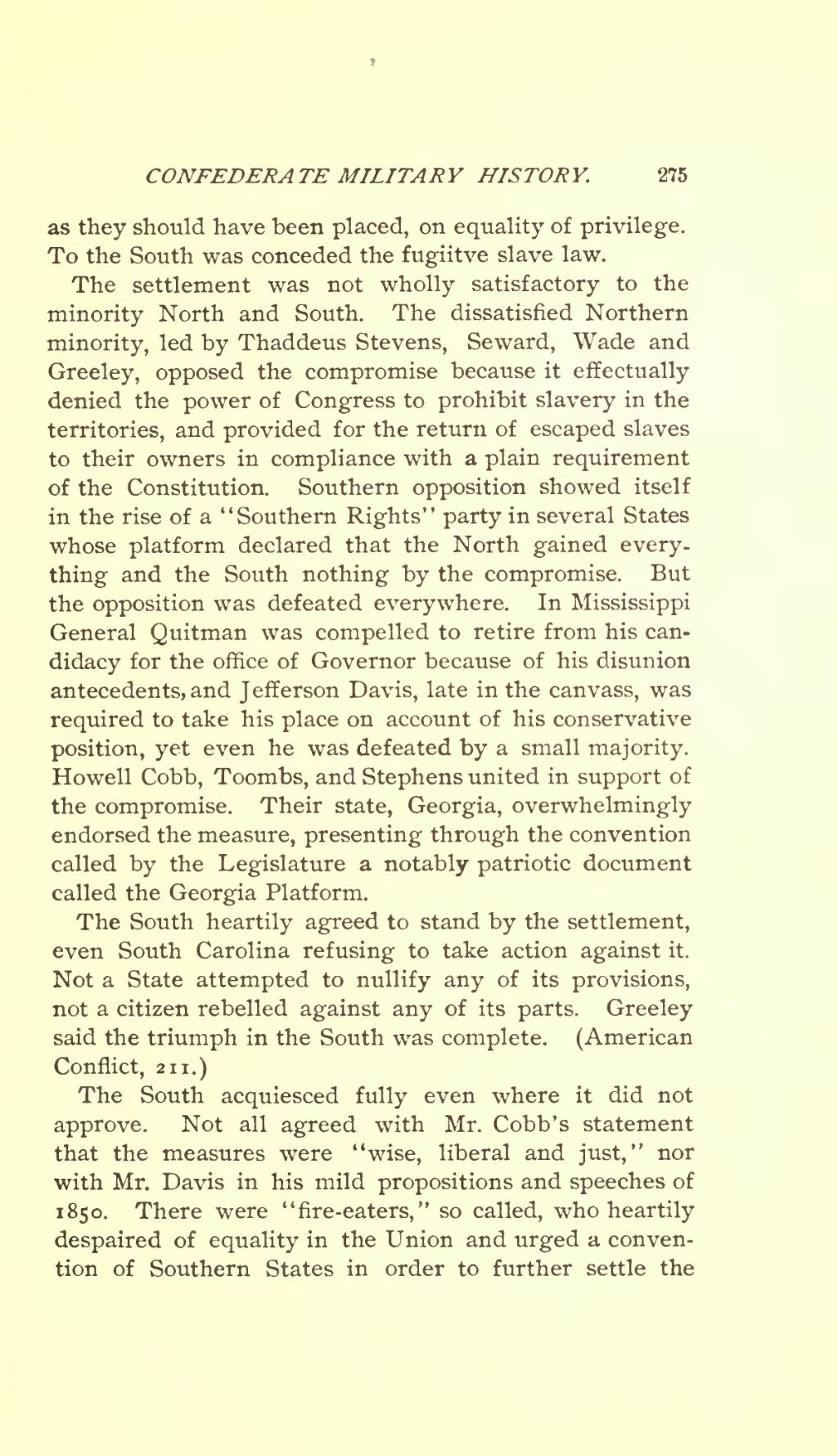as they should have been placed, on equality of privilege. To the South was conceded the fugiitve slave law.
The settlement was not wholly satisfactory to the minority North and South. The dissatisfied Northern minority, led by Thaddeus Stevens, Seward, Wade and Greeley, opposed the compromise because it effectually denied the power of Congress to prohibit slavery in the territories, and provided for the return of escaped slaves to their owners in compliance with a plain requirement of the Constitution. Southern opposition showed itself in the rise of a "Southern Rights" party in several States whose platform declared that the North gained every thing and the South nothing by the compromise. But the opposition was defeated everywhere. In Mississippi General Quitman was compelled to retire from his candidacy for the office of Governor because of his disunion antecedents, and Jefferson Davis, late in the canvass, was required to take his place on account of his conservative position, yet even he was defeated by a small majority. Howell Cobb, Toombs, and Stephens united in support of the compromise. Their state, Georgia, overwhelmingly endorsed the measure, presenting through the convention called by the Legislature a notably patriotic document called the Georgia Platform.
The South heartily agreed to stand by the settlement, even South Carolina refusing to take action against it. Not a State attempted to nullify any of its provisions, not a citizen rebelled against any of its parts. Greeley said the triumph in the South was complete. (American Conflict, 211.)
The South acquiesced fully even where it did not approve. Not all agreed with Mr. Cobb s statement that the measures were "wise, liberal and just," nor with Mr. Davis in his mild propositions and speeches of 1850. There were "fire-eaters," so called, who heartily despaired of equality in the Union and urged a convention of Southern States in order to further settle the
